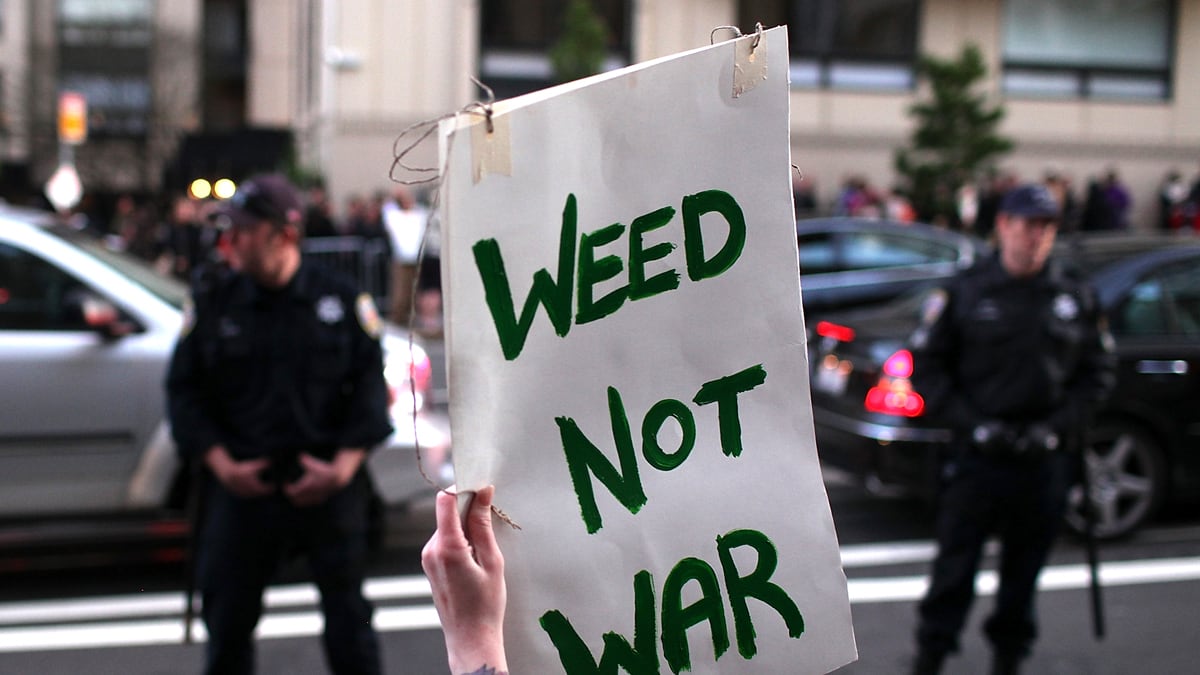If you only listened to the advocates on either side, you’d think the pot question is pretty simple, one way or the other. Depending on who you ask, marijuana is either a relatively harmless diversion that has been unfairly prosecuted by an overzealous police state, or a dangerous gateway drug that often leads to much heavier stuff.
This is unfortunate, because we’re at something of a tipping point when it comes to pot in this country, both in terms of popular opinion and state-level initiatives to decriminalize it. This fall, for example, Washington, Oregon, and Colorado will have marijuana questions on state referenda. So it’s never been more important for the public to have access to reliable, objective information about marijuana and its effects. That’s why four researchers have teamed up to write Marijuana Legalization: What Everyone Needs to Know (part of Oxford University’s “What Everyone Needs to Know” series.
While few experts would challenge the assertion that the United States wastes far too much money on its war on pot, marijuana regulation, like any public-policy issue, is much more complex and tangled than advocates on either side will acknowledge, and Marijuana Legalization is intent on respecting these nuances.
ADVERTISEMENT
What’s notable—and important—about the Marijuana Legalization book is the consensus the four researchers were able to forge on a broad set of issues related to marijuana regulation, despite the fact that they all came in with different beliefs about the drug. “I don’t think any of us came to the same recommendation they started with,” said co-author Mark Kleiman, a professor of public policy at UCLA and visiting fellow at the National Institute of Justice. Other than the final section, in which each author presented his or her preferred approach to marijuana policy, every other fact in the book was agreed upon by all four researchers (often after extended wrangling and negotiation).
There are lots of them, presented in a simple question-and-answer format (“If marijuana accounts for half of all drug arrests, would legalizing marijuana free up half of our prison cells?”; “How would production and production costs change if marijuana were legal in one state but not the entire country?”), and some are surprising. One example is ditchweed—very nonpotent marijuana growing wildly, often on the side of the road. “Although there is no active market for ditchweed, eradication of uncultivated plans accounts for an overwhelming share of domestic cannabis eradication by U.S. law enforcement,” the researchers write, “simply because weeds are easier to find than carefully concealed growing operations. This illustrates how misleading statistics on marijuana can be: eradicating hundreds of tons of ditchweed has no practical impact on drug use.” (Keep that in mind the next time you hear boastful statistics from law enforcement.)

Much of the book’s credibility stems from the authors’ staunchly equal-opportunity debunking. Hemp is one example. Some activists have long claimed that “marijuana’s sober cousin,” if it were legalized, could serve a wide variety of paper, fuel, and fiber needs, but that industrialists and anti-drug zealots have conspired to keep the material’s production in the U.S. illegal (it is legal to import it). Kleiman et al. aren’t buying it. “A more pedestrian explanation,” they write, “is simply that global trade and technological progress have produced superior alternatives to hemp for most of its historical uses.”
But for every question where the authors provide a clear answer, many points of ambiguity remain. One of them is the question of whether legalizing marijuana would increase or decrease alcohol abuse—would people drink more because they smoke more and enjoy combining the substances, or would their desire for some form of intoxication be sated by their increased marijuana use? Research is unclear on whether there’s a correlation, and, if so, in which direction it points. But alcohol is so much more dangerous a drug than marijuana, Kleiman said, that it would be perfectly rational to support or oppose the legalization of marijuana on this basis alone. “There’s no damage done by marijuana that can possibly make up for a 10 percent decrease in drinking,” he explained—and, by the same token, no benefits that would justify legalizing it if doing so brought with it a 10 percent increase.

So part of the point of the book, Kleiman said, is to acknowledge uncertainty when it arises, as it does frequently in the marijuana debate.
“The goal of the book is to make people’s opinions sharper and brighter in the hopes of making them softer,” said Kleiman, “because when you go through all the things we don’t know and all of the possible advantages and disadvantages, you’re still going to have an opinion about what to do, but it’s going to be less strongly held.”
And given the feverish temperature of the marijuana debate, Kleiman argues, that wouldn’t be a bad thing.






